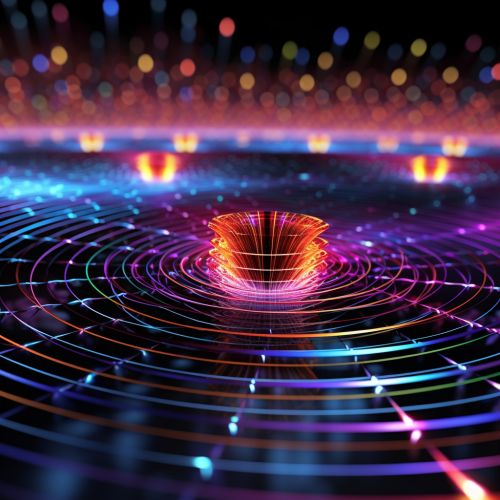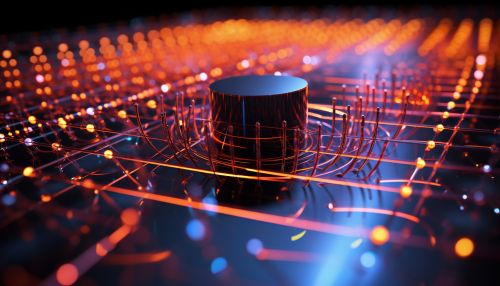Quantum Data
Introduction
Quantum data refers to the information that is stored or processed in a quantum computer. This type of data is fundamentally different from classical data, as it leverages the principles of quantum mechanics to achieve computational tasks that are infeasible for classical computers.


Quantum Bits (Qubits)
In classical computing, data is stored in bits, which can either be in a state of 0 or 1. However, in quantum computing, data is stored in quantum bits or qubits. Unlike classical bits, qubits can exist in a state of superposition, meaning they can be in both states 0 and 1 simultaneously. This property allows quantum computers to process a vast amount of data at once, providing a significant speed advantage over classical computers for certain tasks.
Quantum Superposition
Quantum superposition is a fundamental principle of quantum mechanics that allows particles to exist in multiple states at once. In the context of quantum data, this means that a qubit can represent multiple possibilities simultaneously. This property is what allows quantum computers to perform complex calculations much more efficiently than classical computers.
Quantum Entanglement
Another key principle of quantum mechanics that plays a crucial role in quantum data is quantum entanglement. This phenomenon occurs when pairs or groups of particles interact in such a way that the state of one cannot be described independently of the state of the others, even when the particles are separated by large distances. In quantum computing, this property is used to link qubits in a way that measuring the state of one qubit immediately affects the state of the other, regardless of the distance between them.
Quantum Gates
Quantum data is manipulated using quantum gates, which are the basic building blocks of quantum circuits. Unlike classical gates that perform operations on classical bits, quantum gates perform operations on qubits, changing their state in a way that depends on the principles of quantum mechanics. There are several types of quantum gates, including the Pauli gates, the Hadamard gate, and the CNOT gate, each with its own specific function and effect on the state of qubits.
Quantum Error Correction
One of the major challenges in handling quantum data is the susceptibility of qubits to errors due to decoherence and other quantum noise. Quantum error correction is a set of techniques used to protect quantum information from errors due to decoherence and other quantum noise. These techniques are essential for the development of reliable and scalable quantum computers.
Quantum Cryptography
Quantum data also has significant implications for cryptography. Quantum cryptography leverages the principles of quantum mechanics to secure data transmission, providing a level of security that is theoretically unbreakable. The most well-known application of quantum cryptography is quantum key distribution, which allows two parties to share a secret key that can be used to encrypt and decrypt messages.
Conclusion
Quantum data, with its unique properties and potential, is at the heart of the ongoing revolution in computing and information technology. As our understanding and control of quantum systems continue to improve, the possibilities for harnessing quantum data are expanding, promising to transform various fields, from cryptography to machine learning, optimization, and beyond.
